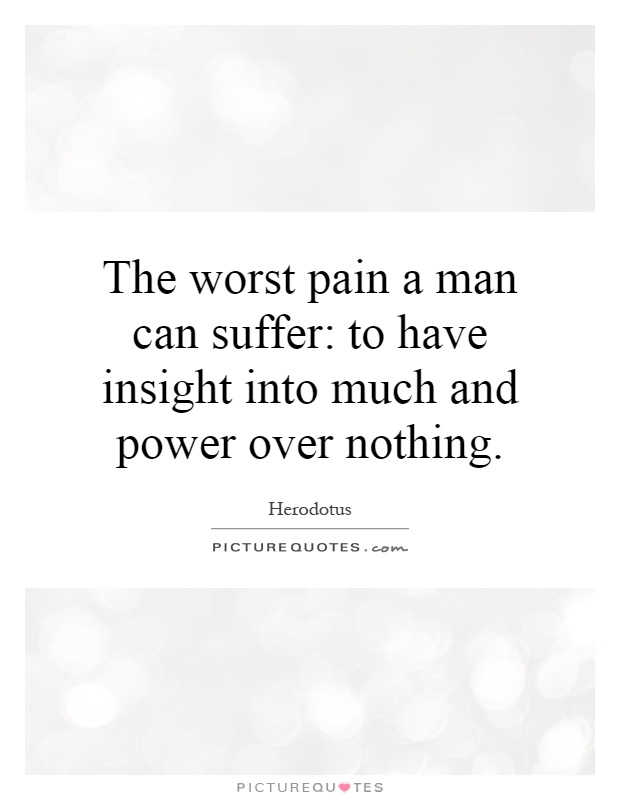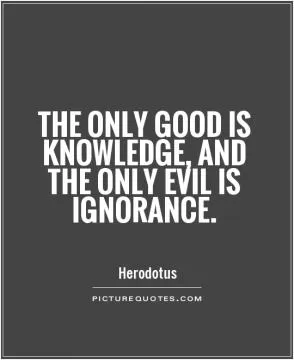The worst pain a man can suffer: to have insight into much and power over nothing

The worst pain a man can suffer: to have insight into much and power over nothing
Herodotus, often referred to as the "Father of History," was a Greek historian who lived in the 5th century BC. His work, "The Histories," is considered one of the earliest works of history in Western literature. In this context, the quote "The worst pain a man can suffer: to have insight into much and power over nothing" takes on a profound meaning.Herodotus was known for his meticulous research and detailed accounts of historical events. He traveled extensively, collecting information from various sources and weaving them into a narrative that aimed to explain the causes and effects of major events. His work was not just a chronicle of events, but an attempt to understand the underlying forces that shaped history.
The quote speaks to the frustration of having knowledge and understanding of the world, but lacking the ability to influence or change it. In Herodotus' time, power was often concentrated in the hands of a few individuals, such as kings and rulers. For someone like Herodotus, who sought to uncover the truth and share it with others, this lack of power could be a source of great pain.
Herodotus' work was groundbreaking in many ways, but it also faced criticism and skepticism from his contemporaries. Some accused him of being too credulous, while others questioned the accuracy of his accounts. Despite these challenges, Herodotus persevered in his quest for knowledge and understanding.
The quote can also be interpreted in a broader sense, beyond the context of Herodotus. It speaks to the universal human experience of feeling powerless in the face of overwhelming knowledge and insight. It is a reminder that understanding the world is not enough; one must also have the ability to act on that understanding and make a difference.












 Friendship Quotes
Friendship Quotes Love Quotes
Love Quotes Life Quotes
Life Quotes Funny Quotes
Funny Quotes Motivational Quotes
Motivational Quotes Inspirational Quotes
Inspirational Quotes